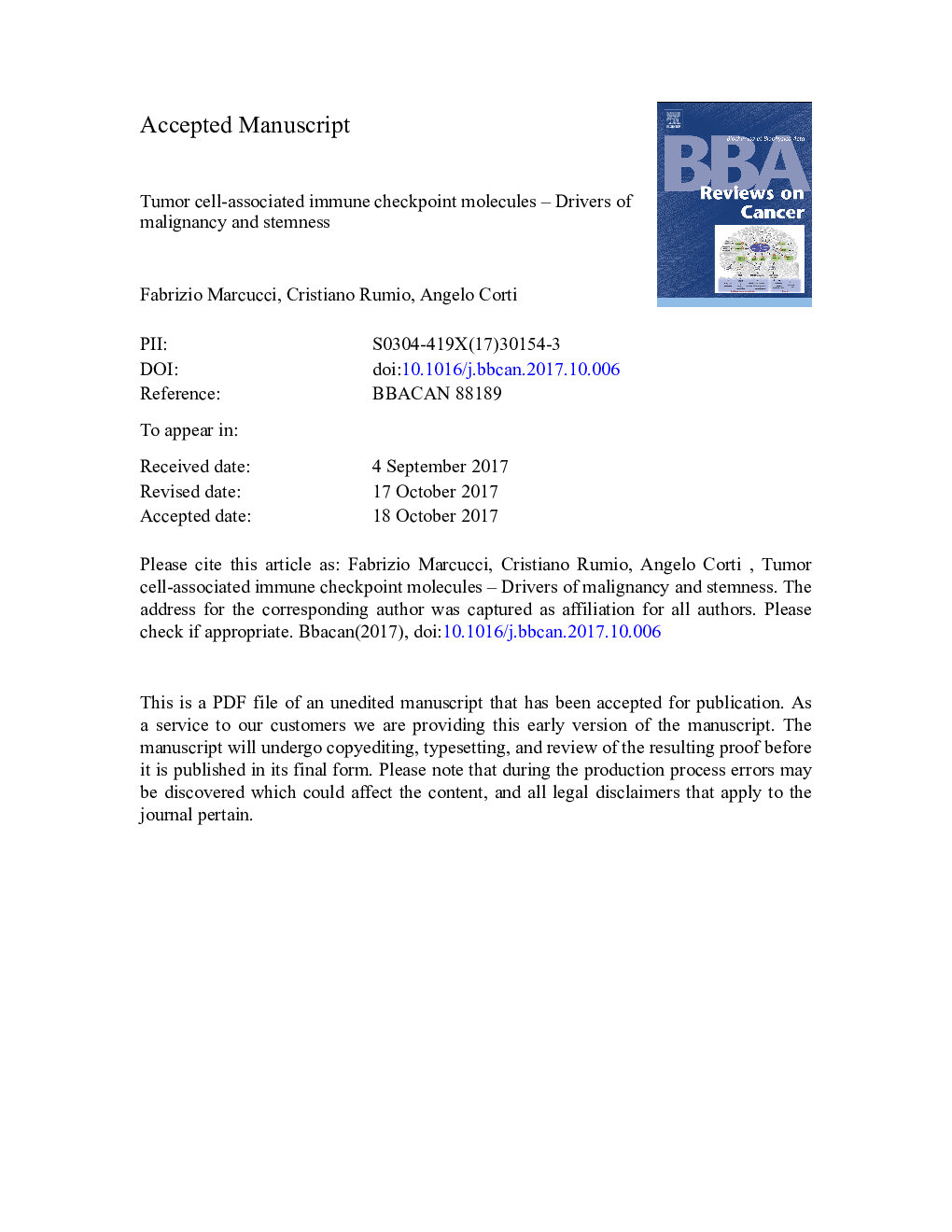| Article ID | Journal | Published Year | Pages | File Type |
|---|---|---|---|---|
| 8429409 | Biochimica et Biophysica Acta (BBA) - Reviews on Cancer | 2017 | 34 Pages |
Abstract
Inhibitory or stimulatory immune checkpoint molecules are expressed on a sizeable fraction of tumor cells in different tumor types. It was thought that the main function of tumor cell-associated immune checkpoint molecules would be the modulation (down- or upregulation) of antitumor immune responses. In recent years, however, it has become clear that the expression of immune checkpoint molecules on tumor cells has important consequences on the biology of the tumor cells themselves. In particular, a causal relationship between the expression of these molecules and the acquisition of malignant traits has been demonstrated. Thus, immune checkpoint molecules have been shown to promote the epithelial-mesenchymal transition of tumor cells, the acquisition of tumor-initiating potential and resistance to apoptosis and antitumor drugs, as well as the propensity to disseminate and metastasize. Herein, we review this evidence, with a main focus on PD-L1, the most intensively investigated tumor cell-associated immune checkpoint molecule and for which most information is available. Then, we discuss more concisely other tumor cell-associated immune checkpoint molecules that have also been shown to induce the acquisition of malignant traits, such as PD-1, B7-H3, B7-H4, Tim-3, CD70, CD28, CD137, CD40 and CD47. Open questions in this field as well as some therapeutic approaches that can be derived from this knowledge, are also addressed.
Keywords
Th1mTORERKCMLTGFHIFCLLBRCASREBPCSCPD-LT helper 1SIRPαnuclear factor κ-light-chain-enhancer of activated B cellsTNFAMLPD-1 ligandPD-1PD-L1PI3KEGFRLKB1SCCNF-κBJanus kinasenatural killershort interfering RNAsiRNASTATImmune checkpointsimmunoglobulin interferonIFNinterleukintransforming growth factorEMTTim-3constantNSCLCNon-small cell lung cancerBreast cancerCancer stem-like cellcancer stem-like cellsHypoxia-inducible factortumor necrosis factorphosphatase and tensin homologphosphoinositide 3-kinaseacute myeloid leukemiaChronic lymphocytic leukemiaChronic myeloid leukemiaSignal transducer and activator of transcriptionMetastasisVariableDrug resistanceMultiple myelomaMicroRNAMiRNAMechanistic target of rapamycinSterol regulatory element-binding proteinJAKPtenSquamous cell carcinomaextracellular signal-regulated kinaseliver kinase B1Epithelial-mesenchymal transitionEpidermal growth factor receptor
Related Topics
Life Sciences
Biochemistry, Genetics and Molecular Biology
Cancer Research
Authors
Fabrizio Marcucci, Cristiano Rumio, Angelo Corti,
